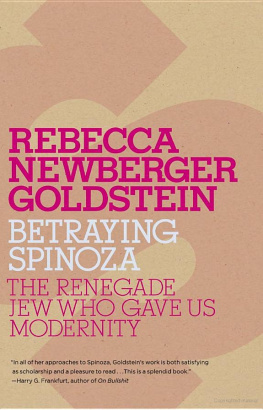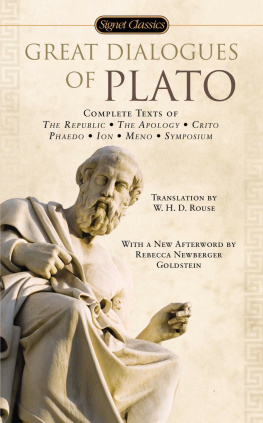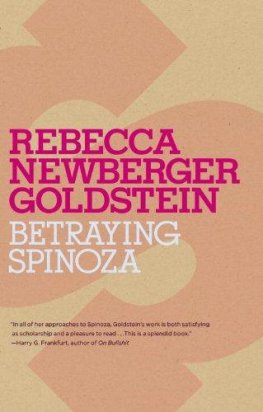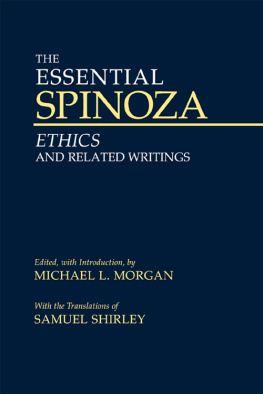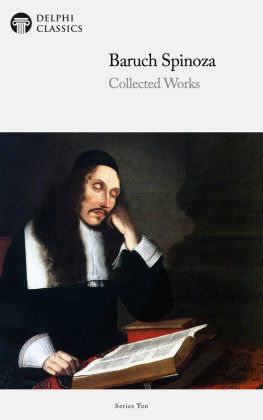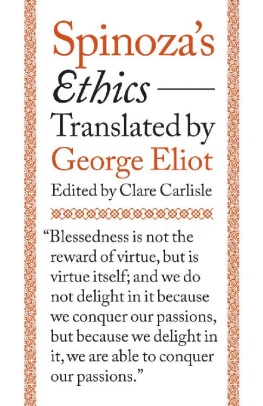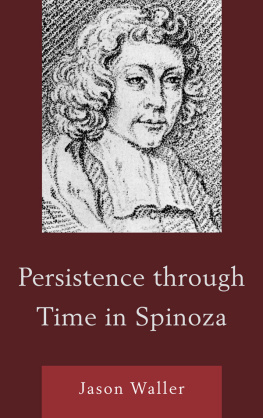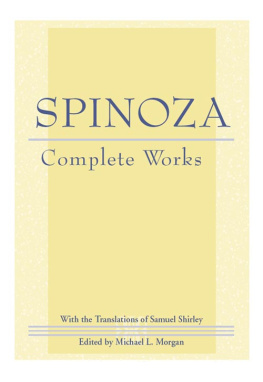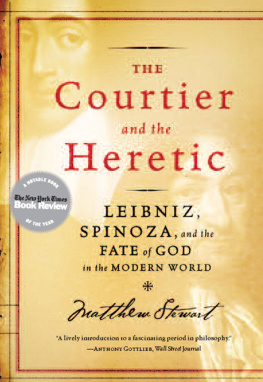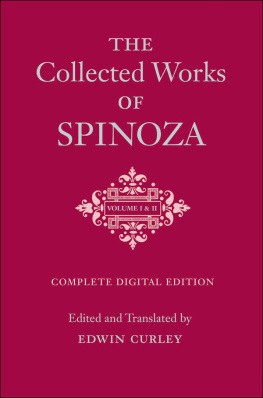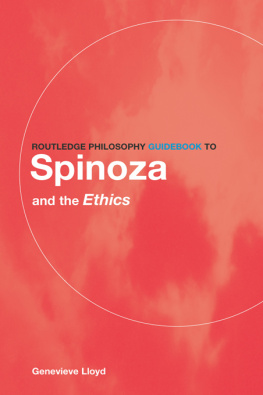JEWISH ENCOUNTERS

Jonathan Rosen, General Editor
Jewish Encounters is a collaboration between Schocken and Nextbook, a project devoted to the promotion of Jewish literature, culture, and ideas.
PUBLISHED

THE LIFE OF DAVID Robert Pinsky
MAIMONIDES Sherwin B. Nuland
BARNEY ROSS Douglas Century
BETRAYING SPINOZA Rebecca Goldstein
EMMA LAZARUS Esther Schor
THE WICKED SON David Mamet
MARC CHAGALL Jonathan Wilson
JEWS AND POWER Ruth R. Wisse
BENJAMIN DISRAELI Adam Kirsch
RESURRECTING HEBREW Ilan Stavans
THE JEWISH BODY Melvin Konner
A FINE ROMANCE David Lehman
RASHI Elie Wiesel
FORTHCOMING

THE CAIRO GENIZA Adina Hoffman and Peter Cole
THE WORLD OF SHOLOM ALEICHEM Jeremy Dauber
MOSES Stephen J. Dubner
BIROBIJAN Masha Gessen
JUDAH MACCABEE Jeffrey Goldberg
YEHUDA HALEVI Hillel Halkin
NACHMAN/KAFKA Rodger Kamenetz
THE DAIRY RESTAURANT Ben Katchor
THE SONG OF SONGS Elena Lappin
ABRAHAM CAHAN Seth Lipsky
THE EICHMANN TRIAL Deborah Lipstadt
SHOW OF SHOWS David Margolick
JEWS AND MONEY Daphne Merkin
WHEN GRANT EXPELLED THE JEWS Jonathan Sarna
HILLEL Joseph Telushkin
MESSIANISM Leon Wieseltier
For Steve
DESPITE SPINOZA
CONTENTS

I.
II.
III.
IV.
V.
VI.
I

Prologue: Baruch, Bento,
Benedictus
B y what right is Benedictus Spinoza included in this series, devoted as it is to Jewish themes and thinkers?
Can the seventeenth-century rationalist, who produced one of the most ambitious philosophical systems in the history of Western philosophy, be considered, by any stretch of interpretation, a Jewish thinker? Can he even be considered a Jew? Benedictus Spinoza is the greatest philosopher that the Jews ever produced, which adds a certain irony to his questionable Jewishness.
He was excommunicated at the age of twenty-three by the Portuguese-Jewish community in which he had been raised and educated. It was a community of refugees from the Spanish-Portuguese Inquisition, a Jewish calamity whose tragic proportions would be exceeded only in the twentieth century. The members of the community were predominantly former Marranos, who had lived on the Iberian Peninsula, mostly in Portugal, as practicing Christians since Judaism had been formally outlawed on the peninsula at the end of the fifteenth century. The word marrano is believed to derive from the old Castilian for swine, a particularly apt slur to insult those believed to be concealing Jewish practice beneath Christian performance. The relatively liberal city of Amsterdam provided the conditions for their reconnecting to a Judaism that most of them barely knew. Brutal forces of history had given this community its distinctive tone: ambitious for the material trappings of middle-class stability and yet skittish, anxious; enviably accomplished and cosmopolitan and yet filled with religious intensity, confusion, disillusion, and messianic yearning.
Before his expulsion from it, the hothouse world of Amsterdams Sephardimas Jews who derived from Spain (Sepharad in Hebrew) continue to be called to this dayhad been Spinozas world as well. Yet when it closed its doors to him, he made no attempt to reenter it or any other Jewish community.
Excommunication, as it was practiced in his community, was not as severe and final a punishment as the word now suggests. The period of isolation from the community (the terms of excommunication did not extend outside of Amsterdam) typically lasted anywhere from a day to several years. The imposed banishment was a tool of chastisement resorted to with quite common frequency, fundamentally a form of public embarrassment with which to exert control over the volatile mix contained within the Portuguese Nation, as the Amsterdam Sephardim continued to identify themselves.
Whereas others among the chastised had obediently and sometimes desperatelysought reconciliation, Spinoza calmly removed himself from any further form of Jewish life. Nor did Spinoza seek out another religion. In particular, he did not convert to Christianity, though it would have been convenient for him to do so. Spinoza opted for secularism at a time when the concept had not yet been formulated.
He supported himself by grinding lenses, which was no lowly menial occupation, as it is often presented to have been in romanticizing versions of the philosophers life, but was rather a craft that drew extensively from Spinozas serious interest in the science of optics. The quality of his wares was highly valued by other scientists of his day. The important Dutch astronomer Christiaan Huygens, who discovered Saturns rings as well as one of its four moons, preferred Spinozas lenses to all others. The [lenses] that the Jew of Voorburg has in his microscopes have an admirable polish, Huygens wrote to his brother in 1667. The one part of the romantic lens-grinding legend that is sadly true is that the dust from the optical polishing was unhealthy for Spinoza, whose mother and brother had both died young from tuberculosis. He himself succumbed to the disease at the age of forty-four.
Spinozas personal life was, as he wished it to be, simple and relatively isolated. There was a small circle of devoted friends, freethinking Christians from various dissenting Protestant circles, who regarded Spinoza as their master and closely studied, and guarded, his thoughts. He combined a Marranoist cautious discretion about revealing his true views to the dangerously narrow-minded with a touching faith in the power of reason to persuade. So he published his Tractatus Theologico-Politicus (The Treatise on Theology and Politics) anonymously, but also hoped that it would convince the powers that be of its main conclusion, which is succinctly stated in the books subtitle: Wherein is set forth that freedom of thought and speech not only may, without prejudice to piety and the public peace, be granted; but also may not, without danger to piety and the public peace, be withheld. The book evolves into one of the most impassioned defenses of a free democratic state in the history of political theory, an eloquent plea for the separation of church and state. Spinoza allowed himself to hope that, should its argument for tolerance find its mark, he might be able to publish the work on which he had been toiling for years. The rain of abuse that poured down on the author of the Tractatus, whose true identity was soon an open secret throughout Europe, made him a very dangerous man to even remotely acknowledge, and all but foreclosed the possibility of his publishing his magnum opus in his lifetime. This is

